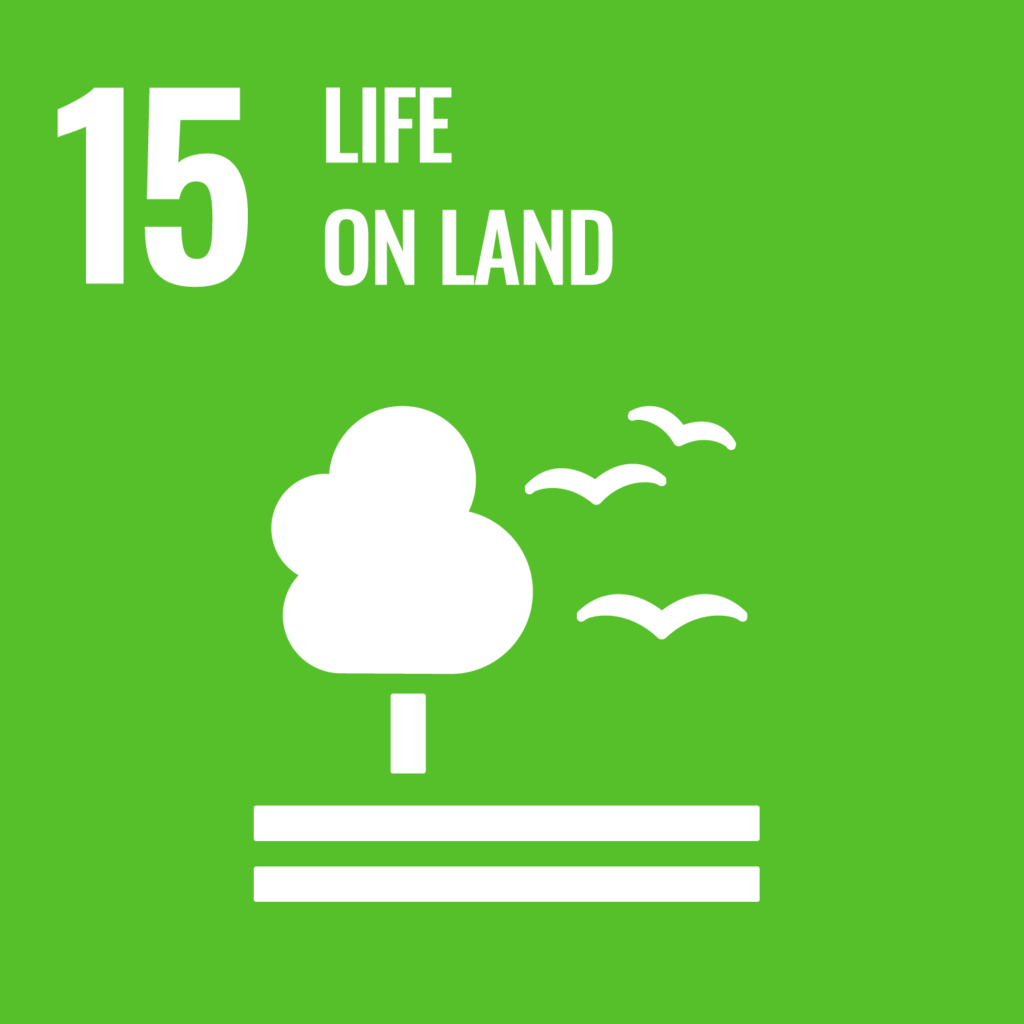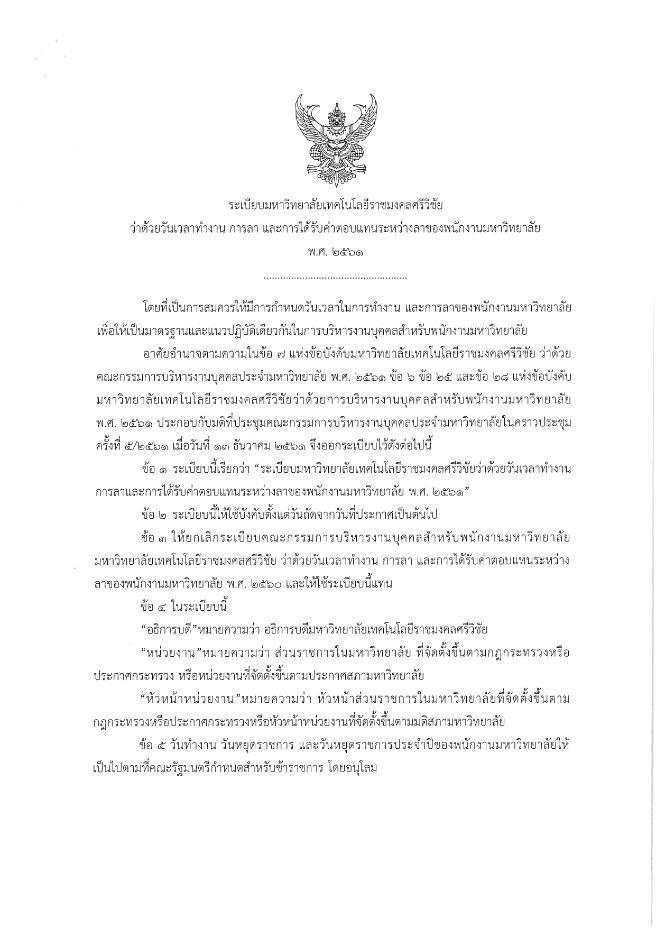Reporters: Asst.Prof.Dr. Prapot Maliwan
Assoc.Prof.Dr. Pornsil Seephueak
Asst.Prof.Dr. Nion Chirapongsathonkul
Asst.Prof.Dr. Worawitoo Meesook
Evidence Date: during 2024 Jan-Dec
Related Indicators: 15.2.5
Details:
Rajamangala University of Technology Srivijaya (RUTS) is committed to promoting sustainable land management in alignment with SDG 15.2.5. The university implements proactive policies that encourage the reuse of agricultural resources, soil rehabilitation, and eco-friendly farming practices. These initiatives aim to ensure that agricultural education and research contribute directly to environmental sustainability and community well-being.
Assoc. Prof. Dr. Pornsil Seephueak, a lecturer from the Plant Science Program, Faculty of Agriculture, has played a key role in advancing this policy through teaching and practical applications. In the course “Mushroom Cultivation,” students are taught how to recycle spent mushroom substrates to produce high-quality compost. This compost is enriched with beneficial fungi and antagonistic bacteria that help suppress plant diseases and pests, reducing the need for chemical inputs.
The composting process not only helps manage agricultural waste effectively but also improves soil structure and fertility. By restoring the soil’s natural balance, this practice supports sustainable vegetable production and enhances students’ understanding of integrated agricultural systems. The activity reflects the university’s educational philosophy of learning through real-world application and environmental responsibility.
Beyond classroom learning, Assoc. Prof. Dr. Pornsil Seephueak extends this initiative to community engagement. In collaboration with Tha Kham Community, Hat Yai District, Songkhla Province, he has transferred knowledge and techniques for producing compost from local mushroom cultivation waste. This collaboration strengthens the relationship between the university and local communities, empowering farmers to adopt sustainable land management practices.
Overall, RUTS’s policy under SDG 15.2.5 demonstrates a strong commitment to integrating academic learning, research innovation, and community outreach. By transforming agricultural waste into valuable soil amendments, the university not only supports sustainable land use but also contributes to biodiversity conservation, soil restoration, and the long-term resilience of local agricultural ecosystems.
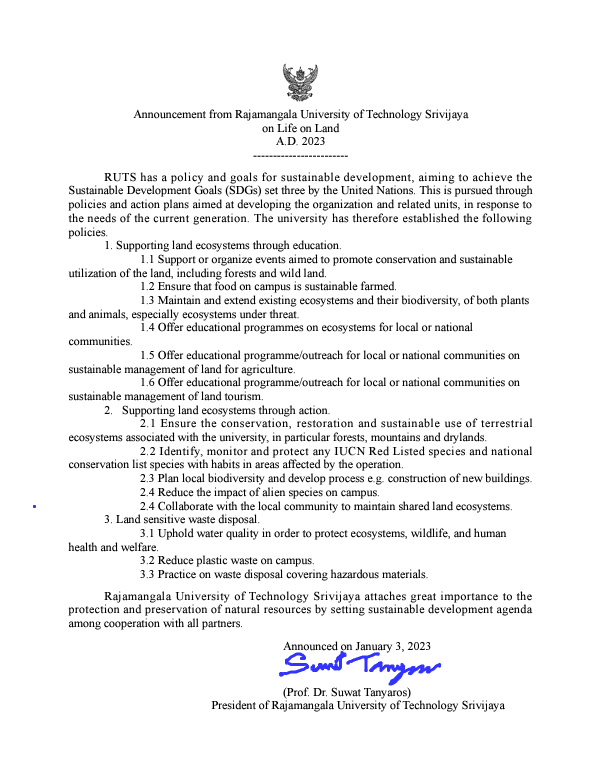
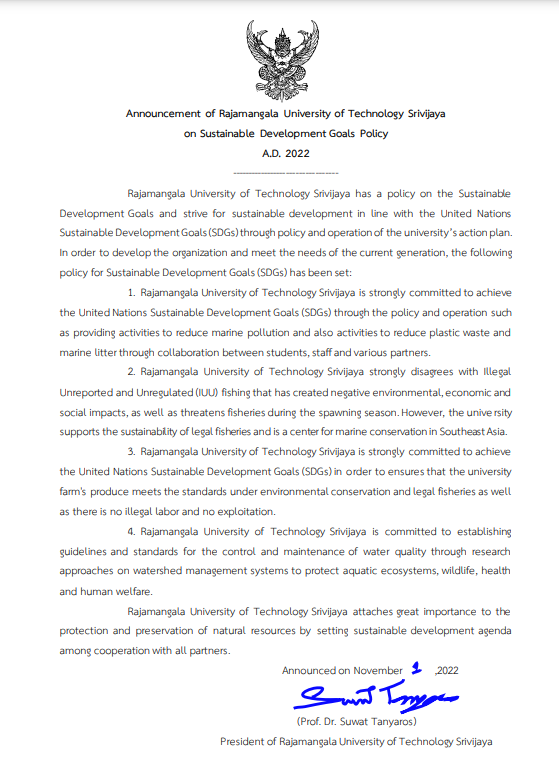
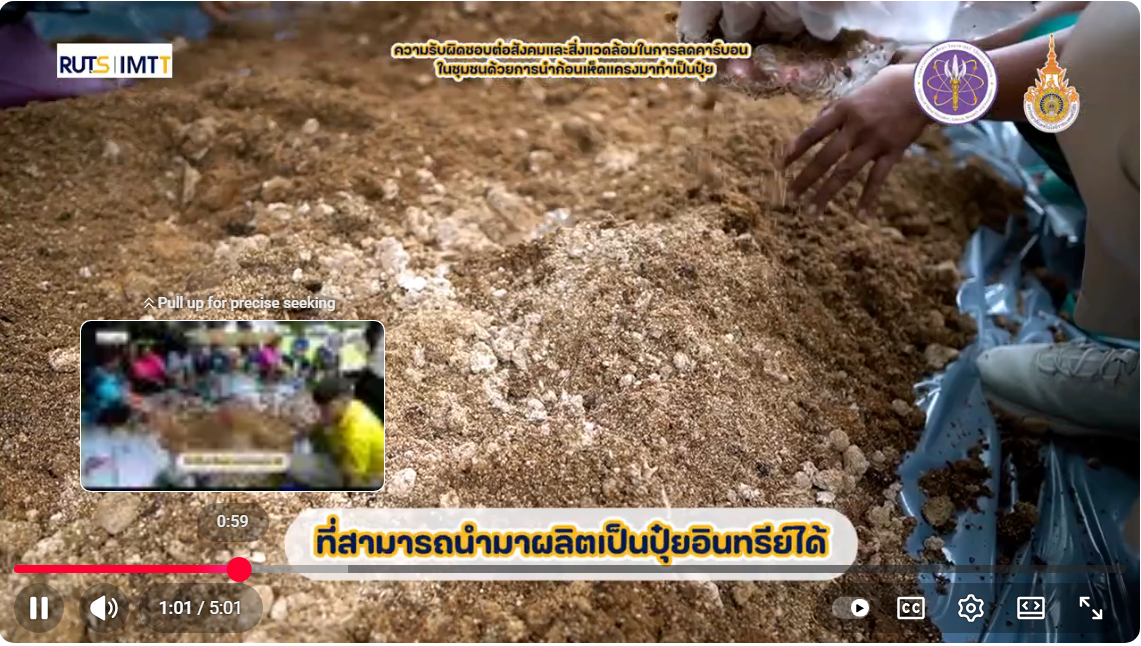
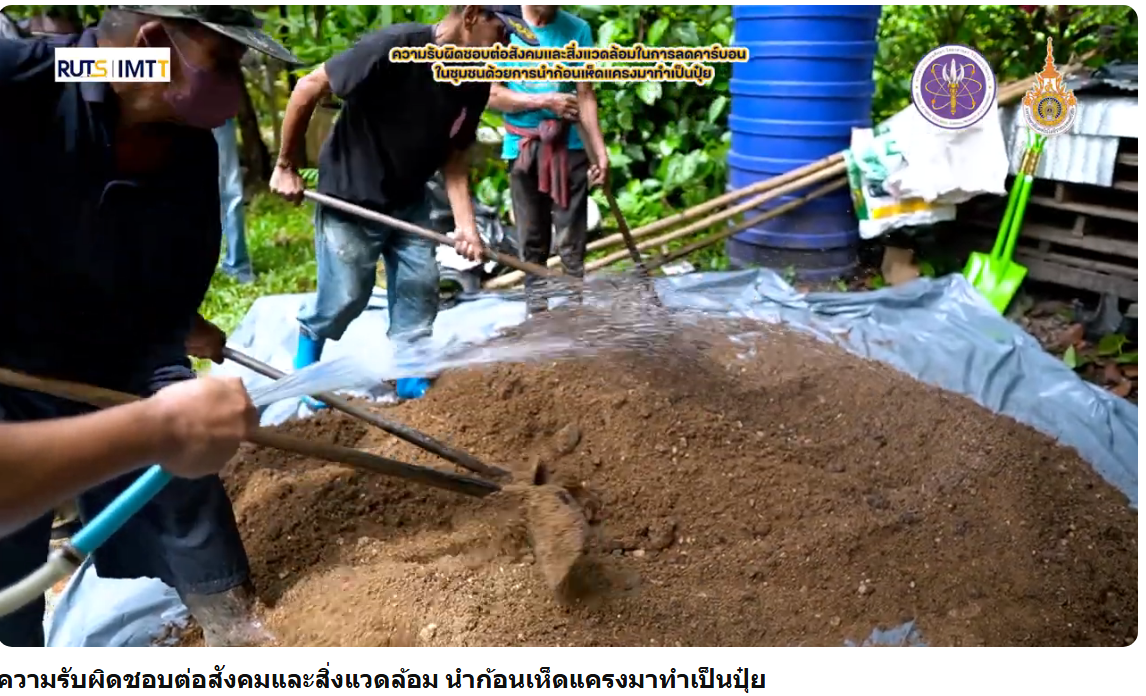
Related Links:

